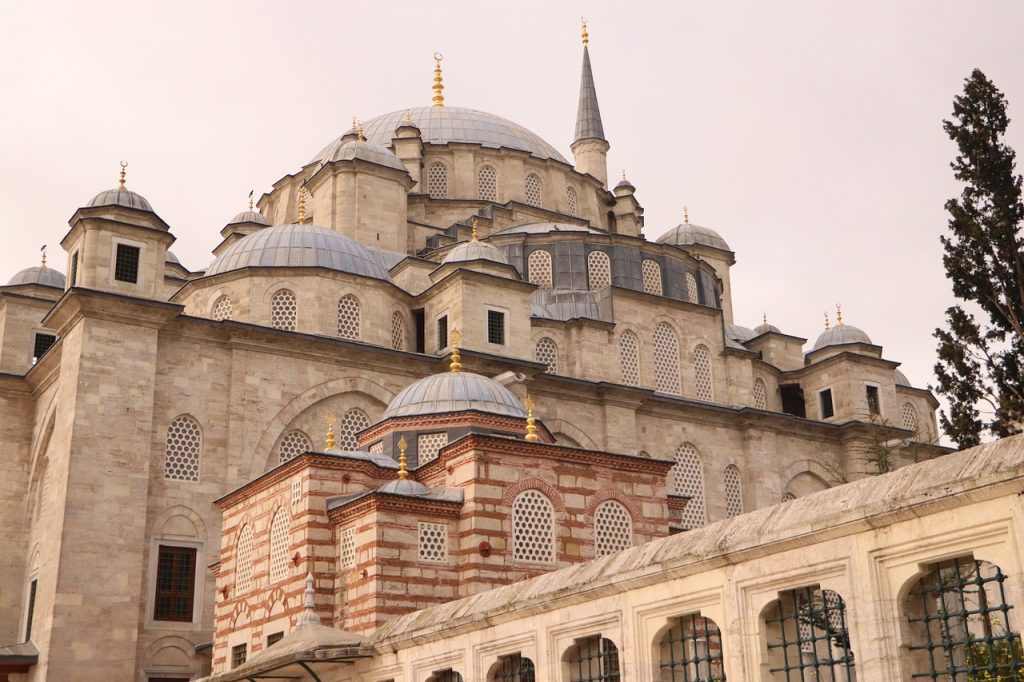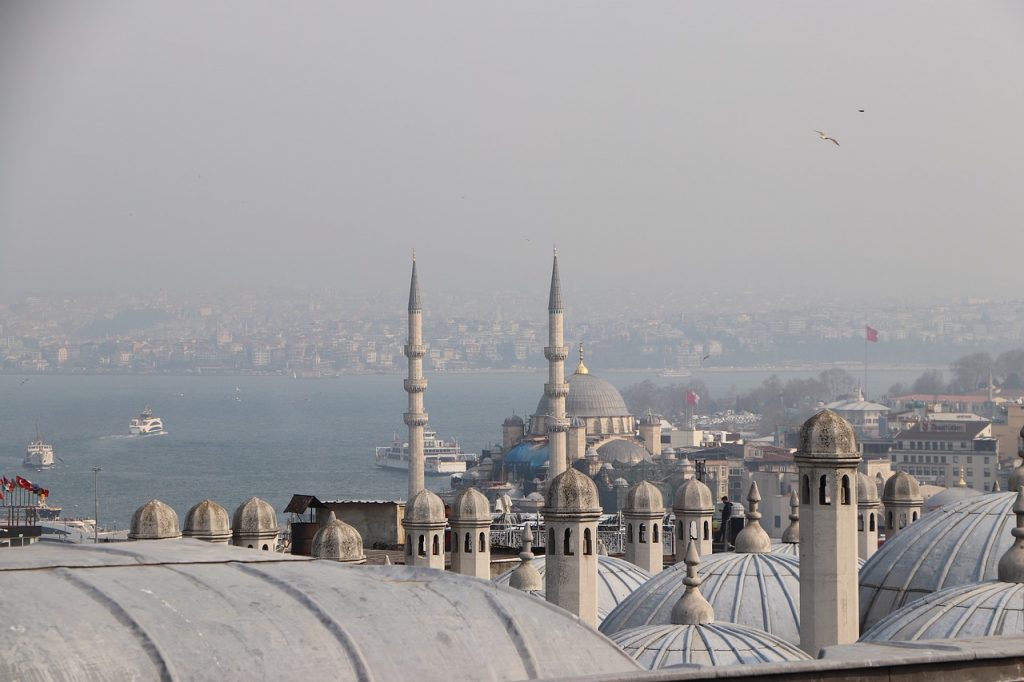Ramadan, pronounced in Turkish as Ramazan, is once again upon us. There are the basic tenets of the month-long fast that anyone living in Turkey is familiar with – no food or drink from sunrise to sunset, evenings filled with feasting, and, depending on where you live, a drummer making the rounds in the early morning hours.

For the many foreigners not fasting, it’s quite easy to adjust to the new schedule. You put in ear plugs at night, you try to avoid commuting the hour before iftar, you put your water bottle away if you find yourself in a conservative neighborhood – these are all small adjustments, corrections of a sort that allow your routine to function almost exactly as it did before Ramadan began.
It is a unique position, being able to go the entire month without ever really having to engage with Ramadan. It used to slip my mind most days, until I would go out for lunch and wonder why my favorite kafeterya is half-empty. Or until I would pass the bakery on my walk home and notice the line stretching out the door and snaking along the sidewalk, all in an effort to get some of that warm, dense Ramazan pidesi.
It’s my guess that Turkey is one of the few countries with a majority Muslim population where it is possible, at least in the large cities like Istanbul, to carry on business as usual during Ramadan. Yet I have found that taking the time to consider the significance of Ramadan for Muslims, more generally, and how it is celebrated in Turkey, in particular, have made me come to appreciate the rhythm of daily life in this holy month.
To start off, what is Ramadan exactly and why is it so holy? Ramadan is the name of the ninth month in the Islamic calendar. Unlike the Gregorian calendar, which is the internationally accepted civil calendar, the Islamic calendar is a lunar one and, subsequently, the timing of Ramadan shifts slightly each year. It is written in the Qur’an that Muhammad first received the revelations from the Archangel Gabriel during the month of Ramadan; for this reason it is considered the most sacred month of the Islamic calendar. Observing Ramadan each year is considered one of the Five Pillars of Islam, the five basic acts that are considered to be requisite for Muslims.
One of the main aspects of observance is to fast (oruç tutmak in Turkish) from sunrise to sunset. Two important rituals associated with fasting are the sahur and iftar, the final meal before beginning the fast and the meal breaking the fast, respectively. The sahur takes place before sunrise, hence the need for a drummer in the morning to wake up those fasting. The food at sahur mainly consists of traditional breakfast foods, although the focus is often on those foods that contain a lot of water, as one must even abstain from water during the fast.
In the evening, many people choose to break the fast by eating dates, as Muhammad broke fast with three dates according to tradition. There is no set menu or specifications for iftar, but in Turkey the Ramazan pidesi is a staple. By its side, you will generally find salads, soups and a main meat dish. One of the most important aspects of iftar is the sweets – güllaç, a pudding made of rose-water and pomegranate seeds, is one of the traditional desserts that is often found only during Ramadan.

Fasting is one of the most apparent rituals of Ramadan, but charity also plays an important role. All around the city this month, you will see a multitude of advertisements for charitable organizations. Another one of the Five Pillars of Islam is the giving of alms, or zakat (zekat in Turkish), and a large number of people will choose Ramadan as the time to give a larger portion, if not all, of the zakat they are obligated to tithe. This is predicated on the idea that any good deed undertaken during Ramadan is rewarded more handsomely than those deeds done in any other time of the year.
With a better idea of Ramadan’s significance as it relates to Islam, I think it becomes important to consider this holy month within the particular context of the Turkish state. Although the majority of Muslims in Turkey identify as Sunni, there is a significant Alevi population who tend not to fast during the month of Ramadan.
Likewise, it is important to recognize that the emphasis on secularism in the early years of the Turkish Republic has continued to be a factor in both state and society up until present time. As a result, there is a large secular population that only identifies as Muslim in the cultural sense, if at all.
For these reasons, it is misleading to speak of Islam in Turkey with broad strokes, as if it were a monolithic entity. In the same way, how Ramadan is or is not observed in Turkey cannot be summed up succinctly. That is what makes living in Istanbul during this holy month and observing how patterns shift slightly, change radically or stubbornly stay the same so interesting.
With that in mind, ask your Turkish friends how they celebrate or observe Ramadan, if at all, and what this month means for them. I bet you’ll hear about a wide range of experiences, rituals and traditions. Sure, it’s possible to continue on without giving much of a second thought to Ramadan. But taking the time to listen to your friends’ thoughts on the holiday can add a new perspective to go with that new schedule.
This post was originally published in July 2013.










Another great job!
Super !
Very clear explanation. I have also seen a wide diversity of observance. I wish I had known about the drums before my first night when I catapulted out of bed thinking a new protest had arrived at my doorstep. In an effort to get in the spirit of the times, I make a practice of eating significantly less and do my best to avoid eating in front of a fasting person. This has proved to be an excellent weight loss program 🙂
[…] Jazz Festival, break fast for Ramadan in Sultanahmet […]
Thanks for providing an explanation that goes far beyond fasting.